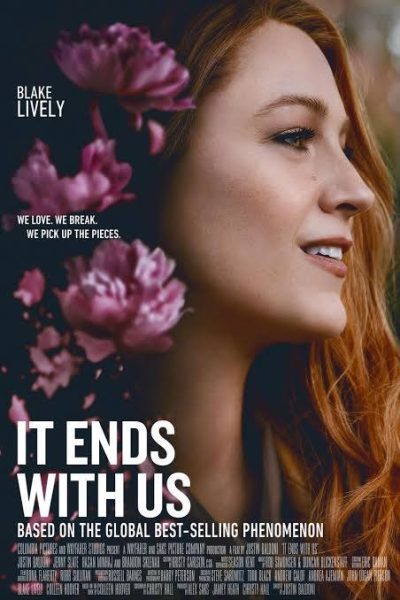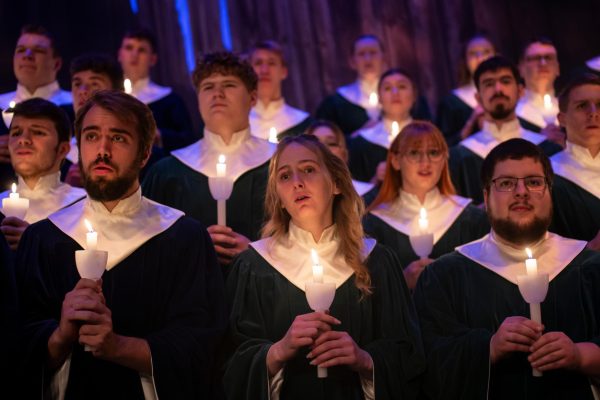A threat to us all: reckless rhetoric and political violence
Free speech is vital to everything—to our democracy, our freedom, and our way of life. The world has seen a rise in violence against investigative journalists, a rise in political tyrants snuffing out truth, and a growing aversion to caring about what is factually, objectively true in favor of what is subjective, sensational, and entertaining. The end result is a decline in caring about actual issues, and instead a worrying about a false reality existing nowhere else but on Twitter threads, Reddit forums, and Facebook groups. It is in these digital echo chambers where existential threats to our way of life are concocted.
In my first year Paideia class, my research paper entitled “McCarthyism, Trumpism, and Cancel Culture: Examining the Story of Reckless Rhetoric,” examined political rhetoric in the context of intense political polarization. I examined the detrimental effects on public trust, journalism, and government policy, coming to the ultimate conclusion that the political theater further dividing our country is nothing less than a tragedy of the commons, emboldened by partisan politics, leading us toward a dark and violent future.
In the immediate past, we have seen the violence that simple words and mistruths can stoke. The January 6th Capitol Insurrection is a prime example of how an established political faction, armed with words and plausible deniability, harvested years of lies and narratives to unleash violence on our democratic process.
The violence has not stopped, and most likely will not cease for a while, as people are continued to be allowed to form radical political factions aimed at perpetuating white supremacy, anti-semitism, and “white replacement” conspiracy theories: a year ago, the CIA labeled white supremacy as the biggest domestic terror threat; GOP rhetoric, used to fuel January 6th, can be traced to the recent invasion of Speaker Nancy Pelosi’s San Francsisco residence; and after Elon Musk acquired Twitter, the use of the N-word on Twitter rose 500%, according to an article published in Business Insider. All of these are indicators that words are more than merely sounds without significance—they can be preludes to open violence. (I refer you to Dr. Karen Dill-Shackleford’s research on media influence on society, and her book How Fantasy Becomes Reality: Seeing Through Media Influence).
Free speech is free speech, but it does not grant free license to incite violence, profess violence-provoking lies, and degrade the truth to the point that what is left is a skeleton of reality wearing a fabricated, caricatured costume of what it once was. I’m no legal expert, and I don’t really have any faith that our legal system can protect us in the First Amendment arena, but I believe it is going to take everyone—through individual effort—to constantly be critical and rise above the partisan nonsense to be serious (as naive as that may seem). It is going to take everyone to be invested in finding the truth, not blinded by a particular agenda or bias. Whether it is through caring more about our immediate local communities, and staying grounded in reality, or consuming a variety of sources for media, there are many ways to foster a healthy political rhetoric diet.
It is not communism to want to have debates based on truth and fact, on topics about the real issues Americans face. It is not anti-American to want to live in a society that respects human rights and individual autonomy. No one should have to fear for their life to express their opinions; violence against anyone is not an acceptable response to speech, no matter its vulgarity. But there is a line between what is fact and what is belief. Just because something is believed to be true does not merit it being factually true. It is in the gap between belief and fact that we must all work together to find common ground. That said, it does not mean that the objective truth should have to cede any ground to what is subjective. Afterall, there is no common ground between human rights and white supremacy.
The bleak conclusion that I came to in my Paideia paper was based on the premise that the current status quo remained unchanged—media giants remain in service to the political and economic elite, average Americans remain completely uninterested in truth, and the truth remains subservient to the flashy, the spectacular, and the entertaining. If that premise changes I suppose there is hope — but how much? As a pessimist, I am probably not the most reliable one to ask. Regardless, there is almost no collective consensus on — or even awareness of — the existential threat to our way of life that is the unabridged and unhinged political reliance on reckless rhetoric.





